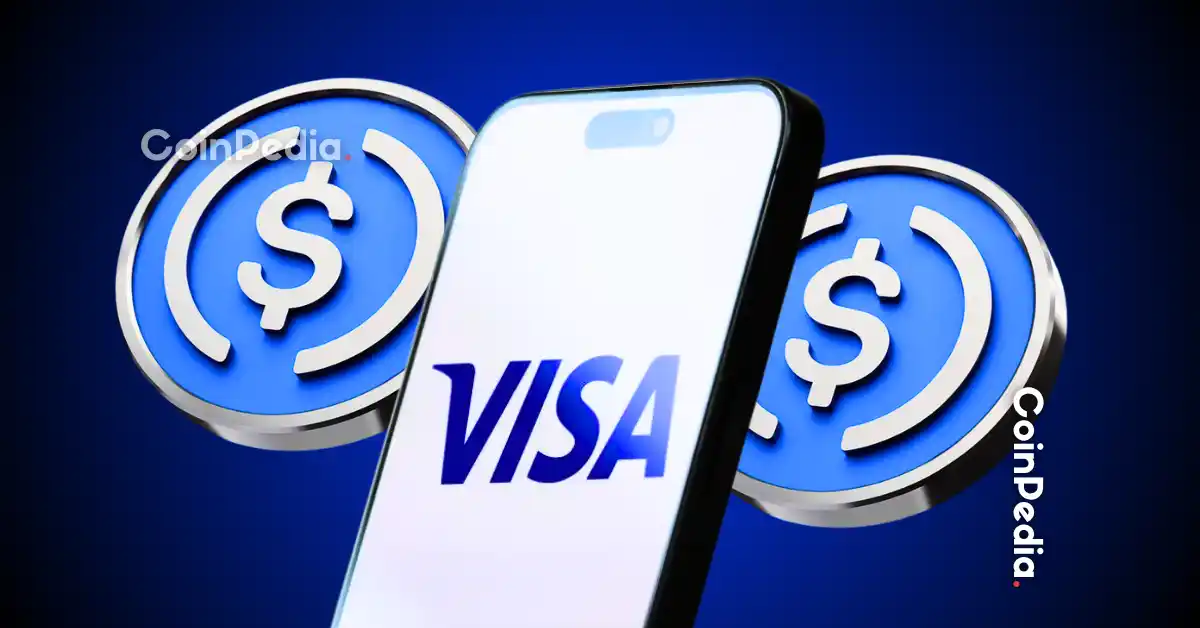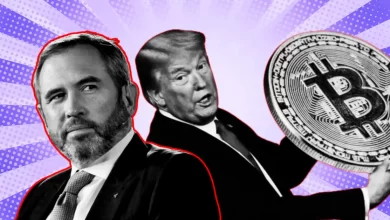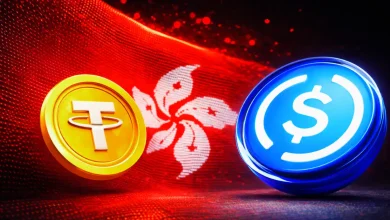
Visa has begun testing USDC stablecoin payouts, allowing U.S. businesses to pay in fiat while recipients receive funds directly in stablecoins.
The pilot, run through Visa Direct, targets faster, borderless payments for creators, freelancers, and gig workers.
Visa plans a wider rollout in 2026, strengthening its role as a bridge between traditional finance and blockchain payments.
Visa is taking another big step into crypto. The payments giant has started a pilot program to test USDC stablecoin payouts, allowing U.S. businesses to pay in fiat while recipients can choose to receive their money directly in USD-backed stablecoins like USDC.
This new move could reshape how freelancers, creators, and gig workers get paid, especially those working across borders. The crypto community is buzzing. Here’s what you should know.
Visa Pushes for Faster, Borderless Payments
The pilot is being tested through Visa Direct, the company’s global payout network. Instead of sending funds to a bank account or card, Visa will now let businesses send payments straight to a stablecoin wallet.
“Launching stablecoin payouts is about enabling truly universal access to money in minutes – not days,” said Chris Newkirk, President of Commercial & Money Movement Solutions at Visa. “Whether it’s a creator building a digital brand, a business reaching new global markets or a freelancer working across borders, everyone benefits from faster, more flexible money movement.”
For the millions of creators and freelancers who rely on digital platforms, this change could mean real convenience. Visa’s own research found that 57% of digital creators prefer payment methods that give them instant access to funds.
Stablecoins Move From Backend to Everyday Use
This is not Visa’s first experiment with stablecoins. In September, the company ran a pre-funding pilot that allowed businesses to use stablecoins for back-end treasury operations. The new pilot takes it a step further, letting end users actually receive their payouts in stablecoins.
With stablecoins, payments can move across borders instantly and without depending on traditional banking hours.
For people in underbanked regions or countries with unstable currencies, it could open up access to reliable, dollar-backed payments. This is innovation with a purpose!
Visa Sets Its Eyes on 2026 Rollout
Visa says it is currently working with select partners in the pilot phase and plans a broader rollout in 2026, depending on demand and regulatory progress. Every transaction will be recorded on the blockchain, adding transparency and auditability.
If the pilot succeeds, Visa could turn stablecoin payouts from a test into a global standard, which would be a major leap for payments.
Never Miss a Beat in the Crypto World!
Stay ahead with breaking news, expert analysis, and real-time updates on the latest trends in Bitcoin, altcoins, DeFi, NFTs, and more.
FAQs
Visa’s pilot lets U.S. businesses pay in fiat while recipients get funds in USDC, offering faster, borderless, and blockchain-based payments.
Freelancers and creators can get instant payments in USDC, avoiding long bank delays and currency issues—ideal for global digital work.
Visa plans a wider rollout in 2026 after testing with select partners, ensuring security, compliance, and smooth user experience.
Visa chose USDC because it’s dollar-backed, stable, and transparent, making cross-border payments fast, reliable, and easy to track.
Trust with CoinPedia:
CoinPedia has been delivering accurate and timely cryptocurrency and blockchain updates since 2017. All content is created by our expert panel of analysts and journalists, following strict Editorial Guidelines based on E-E-A-T (Experience, Expertise, Authoritativeness, Trustworthiness). Every article is fact-checked against reputable sources to ensure accuracy, transparency, and reliability. Our review policy guarantees unbiased evaluations when recommending exchanges, platforms, or tools. We strive to provide timely updates about everything crypto & blockchain, right from startups to industry majors.
Investment Disclaimer:
All opinions and insights shared represent the author's own views on current market conditions. Please do your own research before making investment decisions. Neither the writer nor the publication assumes responsibility for your financial choices.
Sponsored and Advertisements:
Sponsored content and affiliate links may appear on our site. Advertisements are marked clearly, and our editorial content remains entirely independent from our ad partners.








